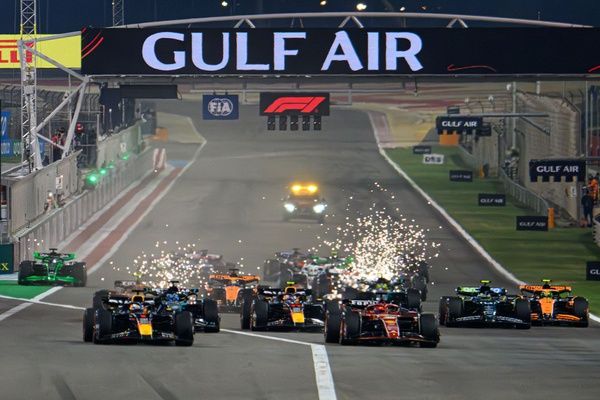Rosberg expresses weight loss concerns
Nico Rosberg has called for more to be done to stop pressure being put on drivers to lose weight in Formula 1 - in the wake of Fernando Alonso's collapse after the Bahrain Grand Prix

The Williams driver reckons Alonso's post-race faint at Sakhir was the result of the Spaniard having lose weight this year to make up for some of the handicap caused by using the heavy KERS.
And he thinks that just raising the weight limit of F1 cars next year will not go far enough in preventing drivers needing to lose as much weight as possible to overcome the problems that have resulted from new rules and technology.
"In Bahrain there were certain drivers who went unconscious after the race, and I think a lot of that is down to the push the drivers have to lose weight because of all the regulations, especially with the KERS," said Rosberg, who says that even he has had to trim his waist line over the winter.
"I think it will be very important to try and get something into there that loses this push to lose weight, lose weight, lose weight. It is like ski jumping in the end.
"When you have KERS and you are a bit further away from the ideal weight distribution, every gramme you can lose as a driver helps you by quite a large amount. I don't think that is the way to go. That shouldn't be the case. It would be great if something could be done for the future."
Although the FIA has increased the minimum weight of an F1 car and driver from 605kg to 620kg for next season, Rosberg thinks that it will make little difference to the driver weight issue.
"That is just the main weight limit, that is not going to change much in terms of the importance of the drivers' weights," he said. "It is still going to be important to be light, especially with KERS. The weight of the driver with seats on the scales would be better.
"If you have drivers starting to be unconscious in a race that was definitely by far not one of the most difficult of the year, because it was quite easy to drive in those temperatures because it was so dry, then you need to start to consider the safety issue a little bit.
"It is not healthy when people start to go unconscious. It is only my opinion, but the weight is definitely something that is influencing it."
Although Rosberg is quite outspoken about the matter, other drivers are not so convinced that the weight factor is a big issue.
Alonso himself reckoned his collapse after the race in Bahrain had more to do with circumstance than the fact he was lighter.
Alonso's drinking system broke in the early part of the race and the Renault driver was dehydrated by the end.
"In Bahrain I had a very specific problem with not enough water in my body because I lost five and a half kilos in the race and this is obviously not normal at all," said the Spaniard.
"It was a problem with a radiator of the car and we had some hot gas going into the cockpit, so I burned all my back with the seat and that was losing me even more water from my body, to keep the temperature in the race.
"So I think it was a very unlucky combination of factors that left me in that condition at the end of the race but as Nick said, I think I was in better condition when I finished the first three races compared to last year.
"We are also running with less aerodynamics in the cars, so maybe the high speed corners are not so demanding in terms of physical etc., so I don't think that this year is any different compared to last year, even if the drivers lose some weight."
Grand Prix Drivers' Association director Mark Webber added: "Personally I am the same weight I have been for the past 10 years, I haven't lost any more weight and I won't be losing any more weight because I know what my numbers are in terms of what I need to be healthy and race in a GP.
"If some drivers are concerned about their own weights then they need to find a balance between doing a grand prix, being tired and the performance of the car. But they have shifted the weight limit up. The weight limit was too low for cars and KERS. We asked for it last year but it is one year too late."
When Rosberg was asked if he felt some drivers were now operating at dangerous levels, he said: "I'm not sure, but I can see that there are some drivers who are very, very thin now - me included.
"Dangerous levels are always down to the person and the pressure you have behind but with the conditions we are racing in. But it opens up the possibility that you do go to dangerous levels.
"I'm fortunate that my team have never mentioned anything. They assume it is down to me. It depends how dedicated I want to be the sport, so they have never said anything to me."
He added: "I think it would be a really nice thing to do for the whole sport, because if you have a heavy driver who is 15kg than the lightest driver then that is not a big disadvantage then. If you are born with heavier bones that should not be a disadvantage to you to such a heavy extent. I think it will be something that should be put into the sport."
Be part of the Autosport community
Join the conversationShare Or Save This Story
Subscribe and access Autosport.com with your ad-blocker.
From Formula 1 to MotoGP we report straight from the paddock because we love our sport, just like you. In order to keep delivering our expert journalism, our website uses advertising. Still, we want to give you the opportunity to enjoy an ad-free and tracker-free website and to continue using your adblocker.


















Top Comments